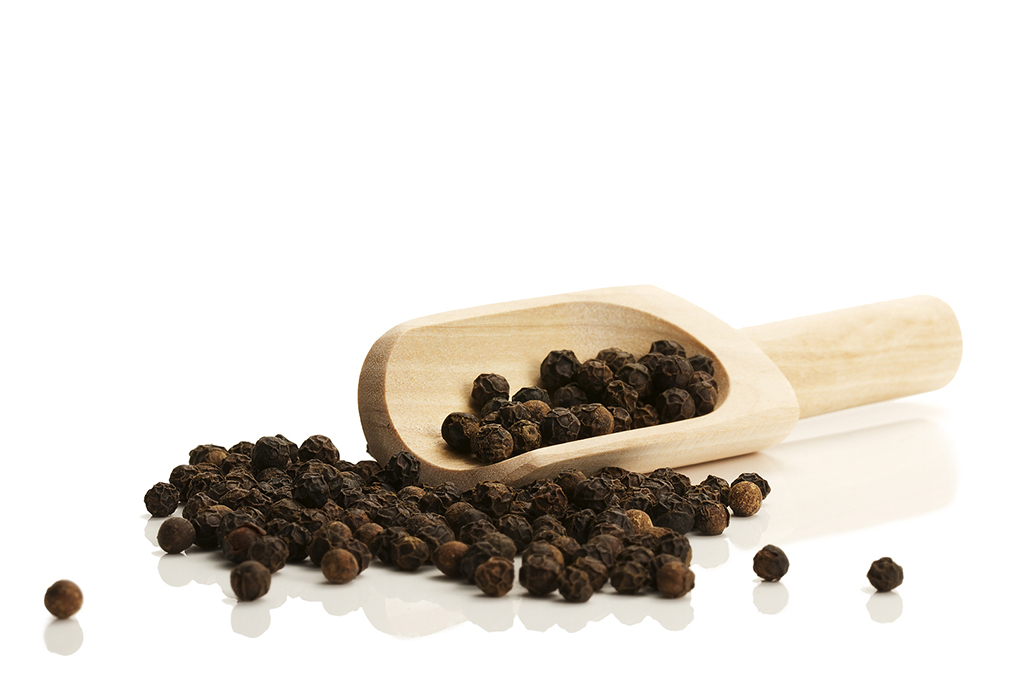 One of the most used spices in your kitchen may hold the key to eliminate your neuropathy pain. You just need to use more of it.
One of the most used spices in your kitchen may hold the key to eliminate your neuropathy pain. You just need to use more of it.
Because a new study in Acta Neurobiologiae Experimentalis reveals that this drug is as effective as the most commonly used drugs but without the side effects.
Piperine is responsible for black pepper’s spicy kick.
Previous research has highlighted its antioxidant and anti-inflammatory properties, but scientists wanted to see if it could effectively relieve neuropathic pain.
Here’s how the study worked:
-
• Male mice were split into six groups, with the majority receiving a chemotherapy drug to induce neuropathic pain.
• Some neuropathic mice were given varying doses of piperine. Others received imipramine, a standard antidepressant used for pain. A control group received no treatment.
Pain Response Tests:
-
1. Thermal Hyperalgesia Test: Mice were placed on a hot surface to measure their reaction time (licking, lifting paws, or jumping).
2. Mechanical Allodynia Test: Thin threads were pressed against their paws to assess touch sensitivity.
The results were remarkable:
-
1. Less Pain Sensitivity: Mice treated with piperine showed significantly reduced sensitivity to heat and touch compared to untreated mice.
2. Dose Matters: Higher doses of piperine (25–50 mg/kg) worked better than lower doses.
3. Reduced Inflammation: Levels of inflammatory markers (interleukin-6 and tumor necrosis factor-alpha) dropped significantly.
4. Lower Oxidative Stress: Piperine boosted antioxidant enzyme activity while reducing oxidative stress.
Amazingly, piperine worked as effectively as imipramine, a commonly prescribed medication for neuropathic pain—offering a natural alternative with fewer potential side effects.
Add extra black pepper to your meals or buy Piperine supplements in any health food store.

 Overcoming IBD
Overcoming IBD Multiple Sclerosis
Multiple Sclerosis Banishing Bronchitis
Banishing Bronchitis Gum Disease Gone
Gum Disease Gone Overcoming Onychomycosis
Overcoming Onychomycosis Neuropathy No More
Neuropathy No More The Prostate Protocol
The Prostate Protocol Brain Booster
Brain Booster
 Ironbound
Ironbound
 Solution for Shingles
Solution for Shingles
 The Bone Density Solution
The Bone Density Solution
 The Ultimate Healing Protocol
The Ultimate Healing Protocol
 The Parkinson's Protocol
The Parkinson's Protocol
 The Chronic Kidney Disease Solution
The Chronic Kidney Disease Solution
 Overthrowing Anxiety
Overthrowing Anxiety The Fatty Liver Solution
The Fatty Liver Solution The Hypothyroidism Solution
The Hypothyroidism Solution
 The End of Gout
The End of Gout The Blood Pressure Program
The Blood Pressure Program
 The Oxigized Cholesterol Strategy
The Oxigized Cholesterol Strategy
 Stop Snoring And Sleep Apnea Program
Stop Snoring And Sleep Apnea Program
 The Arthritis Strategy
The Arthritis Strategy The Vertigo & Dizziness Program
The Vertigo & Dizziness Program The 3-Step Diabetes Strategy
The 3-Step Diabetes Strategy Hemorrhoids Healing Protocol
Hemorrhoids Healing Protocol The Erectile Dysfunction Master
The Erectile Dysfunction Master Weight Loss Breeze
Weight Loss Breeze The IBS Program
The IBS Program The Insomnia Program
The Insomnia Program The Migraine and Headache Program
The Migraine and Headache Program The Neck Pain Solution
The Neck Pain Solution The Menopause Solution
The Menopause Solution The Ejaculation Master
The Ejaculation Master The TMJ Solution
The TMJ Solution The Acid Reflux Solution
The Acid Reflux Solution The Fibromyalgia Solution
The Fibromyalgia Solution The Psoriasis Strategy
The Psoriasis Strategy